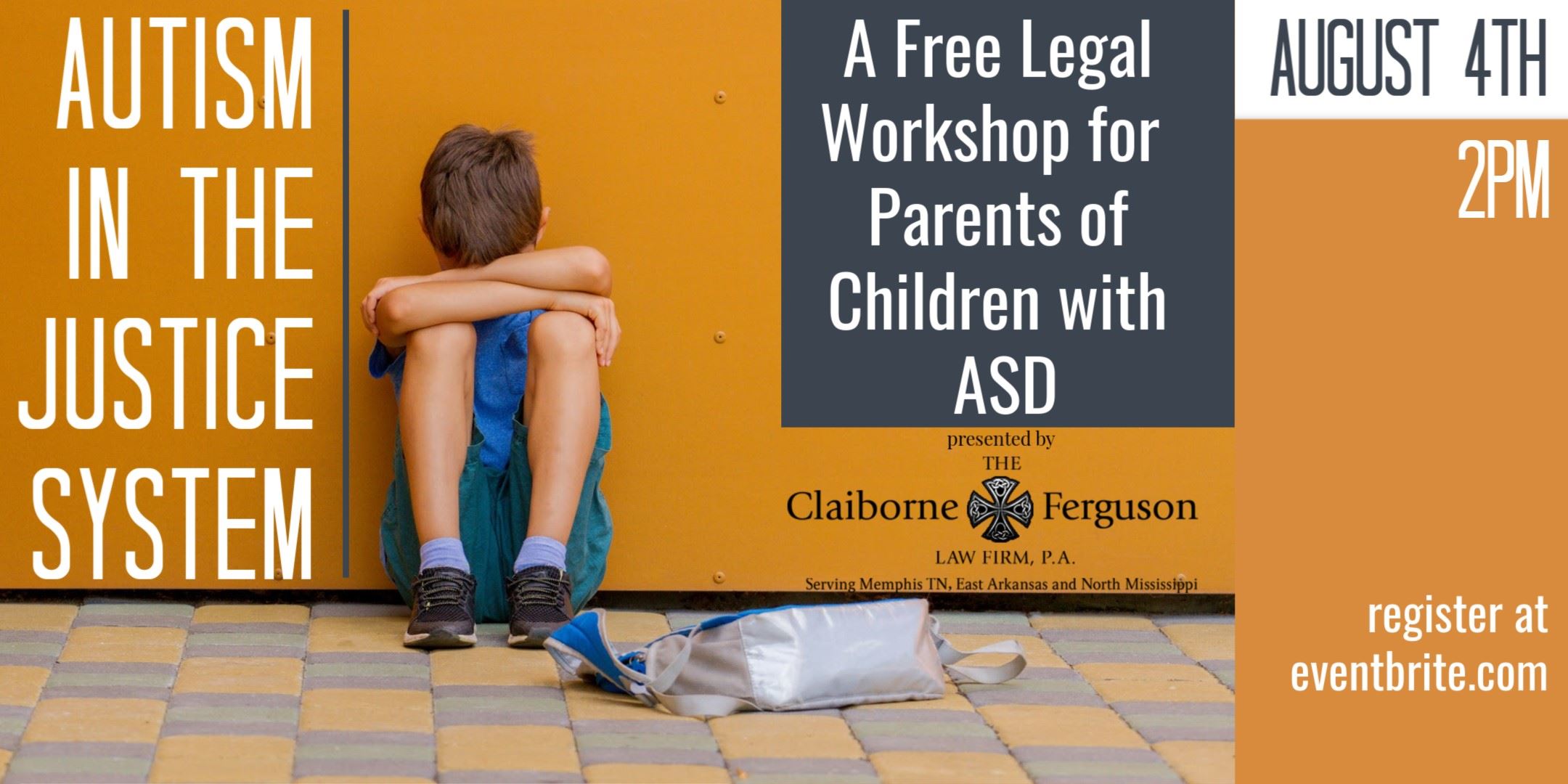
Autism Spectrum and Mental Health Disorders
As the parent of a child or juvenile with Autism Spectrum Disorder (ASD) and/or other mental health disorders, you are likely accustomed to advocating for your child in order for them to receive access to services and resources they deserve. When your child with ASD or other mental health disorders is charged with a crime, your advocacy for them is more important than ever. They deserve to have a team of experts on their side to ensure their rights are fully protected. Our team is evolved in our understanding of spectrum disorders and mental health challenges. We ensure our clients are evaluated properly and with more than 30 years of experience, we are equipped to best advocate for our clients against prosecutors who are often slower to adopt scientific findings. Call Ferguson McNeil Law Firm, P.A. to access our team of expert criminal defense lawyers, paralegals and investigators. We understand the nature of ASD and mental health disorders, and we're experienced in securing most favorable and most compassionate outcomes for our clients.

We take the time to answer all your questions, explain your options, and ensure that your rights are protected every step of the way.

Blog & FAQ Stay Updated
-
Will I Go to Trial?Depending on your case and the way that your attorney approaches the case. If you and your attorney are able to reach a resolution through negotiations before trial, that you may not have to go to court. But if a remedy cannot be reached than you will have to go to trial. There are times that a case is dismissed before trial so there is a chance that your will not have to appear in court.
-
The Police Are Asking to Search My Car. Should I Let Them?No. As a U.S. citizen, you have rights to protection from unlawful search and seizure, which means that officials must have your consent or a warrant in order to search your person as well as places such as your car, home, or office.
-
The Police Officer Says That It Will Go Better for Me if I Confess. Should I?No. It is true that a deal may be worked out in exchange for a guilty plea in some cases; however, it is also important to know that police officers can lie to you in order to elicit information or a confession. With this being said, it is crucial that you do not confess or deny anything until you can speak with a legal representative.
-
Constitutional Rights in Tennessee Criminal Defense: A Primer for DefendantsCriminal DefenseRead Article
-
Key Differences Between State and Federal Criminal Defense Cases in TennesseeCriminal DefenseRead Article
-
Should You Consent to a Search of Your Vehicle if You're Pulled Over?Criminal DefenseRead Article
-
Understanding Assault and Battery: What You Need to KnowViolent CrimesRead Article
-
When Government Employees Need a LawyerUnder InvestigationRead Article
-
Why you shouldn't let the police talk to your kids (or you)Criminal DefenseRead Article